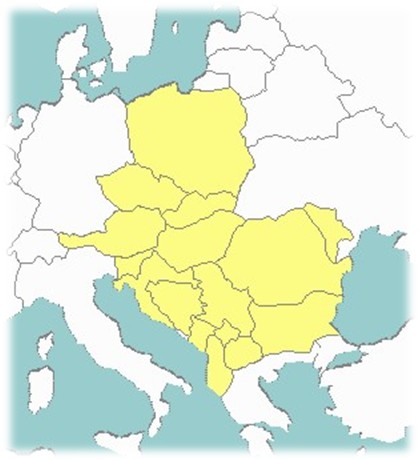









Vienna University of Technology, Austria
Institute of Sensor and Actuator Systems
Department of Microsystem Technology
Prof. DSc. Dipl. Eng. Friedrich FRANEK
Short description, research and educational contributions
The Vienna University of Technology (VUT, in Austria best known as TU Wien) was founded in 1815 as a royal-imperial institute. Today, it is the largest technical, scientific education and research institution in Austria. The VUT has 8 faculties, offering numerous study options, ranging from natural sciences to engineering sciences and to architecture and performing internationally competitive research in a wide area of fields. Research activities include both, fundamental research in mathematics, physics and chemistry and applied research in various fields of natural and engineering sciences. A special focus is given to cross-disciplinary research. In many cases, applied research is performed in cooperation with companies and/or outside research institutions.
The Institute for Sensor and Actuator Systems (ISAS) or its predecessor, respectively, which was in charge of the major part of tribology related research and education at VUT, managed to participate in the Austrian Center of Competence for Tribology (Wiener Neustadt) as one of the founding members and partial owners. As a consequence, a considerable part of the research work is now done at this Center. Yet still teaching activities, especially supervising of PhD theses, are done at this institute, being complemented by some activities at the Institute for Engineering Design and Logistics Engineering at VUT.
Related to tribology some research topics are still in the focus of ISAS. This concerns tasks in tribometrology and tribosensorics. Such topics are in the research program of the Department for Microsystem Technology (DMT) at ISAS. Together with VUT institutes in physics, chemistry and materials engineering a number of highly relevant to tribology research tasks are conducted.
Within the scope of its research activities ISAS and DMT in particular cooperates with many Austrian and European Research Institutions and companies. Numerous research projects are in progress and further ones have been completed, supported by VUT, national or international funds.
Several of these projects or tasks provide positions for PhD students that are scientifically supervised by members of the VUT and can do their work using the facilities in both locations (Vienna, Wiener Neustadt) on the topics mentioned, e.g.
- Scanning Electron Microscopes
- Transmission Electron Microscopes
- Xray photospectrometer
- Nanoindenter
- 3D confocal microscopes
- Laser vibrometer
- Tribometers (various setups)
Due to the interdisciplinarity of tribology students have different possibilities to get into contact with tribological subjects. There are several master courses which include different aspect of tribology on a semi-obligatory level or as optional subjects, viz especially: Mechanical Engineering, Technical Chemistry, Technical Physics, Energy Engineering, Material Sciences. Following regular lectures for PhD students in the core fields of tribology are offered: Introduction into tribology; Tribometrology and tribosensorics; Tribology for mechanical engineers; Seminar for qualified students.
The Unit aims participating in the current CEEPUS project through investigation of the research topics as:
• Methodology and design of sensors in triboengineering, such as microfluidics, microsystems, materials, sensor technology and nanotechnology in research projects in different areas where sensing solutions are needed;
• Modelling of solids and tribosystems on various length scales, coupling of models (FEM, BEM, MD, etc.);
• Preparation of surfaces by a variety of methods ranging from thin film technology to industrial production processes;
• Modification and tribological investigation of polymer materials, embedding of lubricants, technology issues, compatibility of components, ageing behaviour;
• Chemical characterisation of tribosurfaces and of organic lubricants by various techniques. Imaging and profiling mass spectrometry and electron spectroscopy as well fluorescence imaging will be used and new analytical concepts and methods will be developed, especially for the characterisation of lubricants;
• Use of state of the art radio-chemical methods for the detection of wear in the nanometre range and design optimised detection systems;
• Optimisation of the efficiency of drivelines by reduction of friction and wear. Investigations with engines and vehicles on engine test benches and roller test bench. Vehicle operation - Fleet test, Data analysis and interpretation, modelling and extrapolation.


Copyright © 2012-2015, UCTM CEEPUS Tribology
Participating institution - partner






